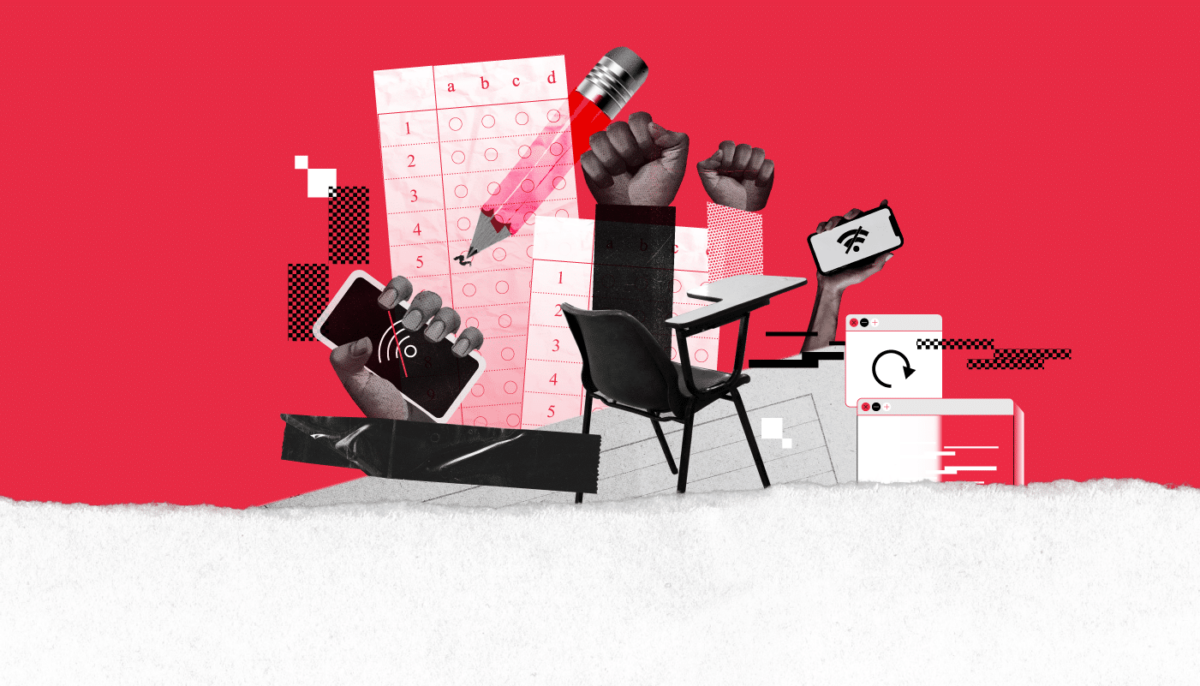As part of the #NoExamShutdown campaign, we’re sending an open letter urging authorities in Jordan to continue abstaining from resorting to internet shutdowns during exams, and to #KeepItOn.
To His Excellency, Bisher Khasawneh, Prime Minister of Jordan
CC: Dr. Azmi Mahafzah, Minister of Education; and
Mr. Ahmad Hanandeh, Minister of Digital Economy and Entrepreneurship
Re: Internet shutdowns during Jordan’s national school exams
Your Excellency the Prime Minister, Mr. Khasawneh,
We’re writing to you on behalf of SMEX, Access Now, the Internet Society, and members of the #KeepItOn coalition — a global network of over 300 civil society organizations from 105 countries working to end internet shutdowns — to appeal to you to ensure the people in Jordan have unhindered access to the internet, social media platforms, and all other communication channels during the upcoming Tawjihi exams scheduled for June and July 2024.
Since 2018, Jordan has repeatedly blocked widely-used messaging apps and disrupted the internet in areas where exams are taking place in order to prevent cheating or the leaking of exam questions. We were encouraged that there were no reports of internet disruptions or blockings during the 2023 exam period, and we hope this development continues in 2024, paving the way for rights-respecting measures to secure the Tawjihi exams. Cheating during exams is a problem that needs to be addressed, but disrupting the internet is not the solution, especially when such measures have failed to dissuade students’ attempts to leak questions. We, therefore, urge the Government of Jordan to continue to #KeepItOn during this year’s exams and adopt more effective and proportionate alternatives.
Blocking applications and disrupting connectivity is not only ineffective; it is also costly and harmful for Jordan’s society and economy. Such actions negatively impact education, healthcare service provision, business operations, and daily activities that depend on online platforms. In 2020 alone, app blocking during exams incurred an estimated USD 4.9 million in financial loss for Jordan. After Jordan blocked TikTok last year, 4.43 million people lost access to the app, leaving many users who relied on it for their livelihoods without income.
Internet throttling, which consists of deliberately slowing down internet connectivity, violates the fundamental rights to freedom of expression and access to information. During previous exam periods, Jordanian authorities have instructed ISPs to disrupt access to messaging applications, limiting people’s ability to contact one another, to browse government websites, or to access potentially life-saving information. Restricting connectivity, even in limited areas and for set hours, jeopardizes people’s safety, public participation, access to information, and human rights.
Jordanian authorities have repeatedly restricted access to communication services such as messaging apps and live-streaming services, often seen as an attempt to control public discourse conversations, discourage dissent, and prevent the organization of protests via social media. There have also been documented instances where the authorities have used their power to either ban or limit access to platforms such as Telegram, Facebook, Viber, Clubhouse, Line, Tango, WhatsApp, and IMO, often without clear justification beyond concerns about exam cheating. Furthermore, the Ministry of Education has requested the Telecommunications Regulatory Commission (TRC) to block websites or applications without a judicial order, making the practice unlawful. The TRC’s compliance with the ministry’s request raises questions about the Commission’s primary mission of protecting internet access for all people. As a country that has ratified the International Covenant on Civil and Political Rights (ICCPR), Jordan must uphold its obligation to protect and promote the right to freedom of opinion and expression.
Internet shutdowns are always an attack on human rights. Based on Article 19 of the Universal Declaration of Human Rights and the ICCPR, disrupting internet access restricts people’s communication, self-expression, and access to vital information, violating the fundamental right to freedom of expression. The international community widely condemns shutdowns, as indicated by United Nations Human Rights Council Resolution 47/16 and consecutive UN resolutions, which call out “the use of Internet shutdowns to intentionally and arbitrarily prevent or disrupt access to or dissemination of information.”
In a recent report on internet shutdowns, the UN Human Rights Council went further, exploring the impacts on a broad range of human rights and urging authorities not to impose shutdowns. The UN High Commissioner for Human Rights has also stressed that “switching off the internet causes incalculable damage, both in material and human rights terms,” while “the costs to jobs, education, health, and political participation virtually always exceed any hoped-for benefit.”
Internet shutdowns are neither necessary nor proportionate under human rights law. Article 4 of the ICCPR allows states to “take measures derogating from their obligations under the Covenant to the extent strictly required by the exigencies of the situation.” According to the UN Human Rights Committee, this requirement should reflect “the principle of proportionality, which is common to derogation and limitation powers.” In other words, “any derogation measure shall be such only as is strictly necessary to deal with the threat to the life of the nation and is proportionate to its nature and extent.” Internet shutdowns disproportionately affect all users and unjustifiably limit access to information and emergency communication services during critical times, making them disproportionate by default.
In light of the above, we highly welcome the right-respecting approach that Jordan took last year to steer away from shutting down the internet and blocking platforms during exams, and further appeal to you to commit to ending this costly, ineffective, and disproportionate practice during the upcoming exams. We are available to you and your office to discuss this matter further and provide support in navigating this new transition away from internet shutdowns toward more rights-respecting alternatives.
Yours sincerely,
Signatories
SMEX
Access Now
Internet Society (ISOC)



